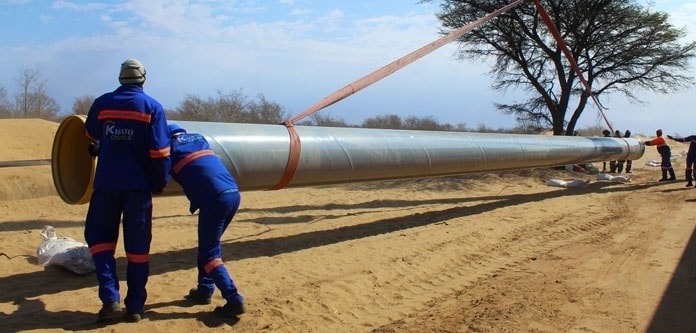
Govt, Khato Civils Disagreeing On Materials To Be Used In Salima-Lilongwe Water Project
Published on January 13, 2021 at 7:58 AM by Flora Mitumba
Controversy has ensued over the Salima – Lilongwe water project as government and contractor Khato Civils have disagreed on materials to be used in the project.
This followed a meeting held on Tuesday, as the parliamentary committee on Natural Resources engaged government officials and Khato Civils to discuss the project progress.
According to MacDonald Mwale, Director of Economic Affairs who also represented secretary to Treasury, Khato has gone against the contract where it was agreed to use Ductile Iron Pipe in the project.
He told the committee that Khato is now opting for Mild steel pipes which are manufactured in South Africa, a thing that has not gone well with government as it is not part of the contract.
However on his part, Mongezi Munyani, Khato civils leader of delagation said they have opted for Mild steel pipes as they are affordable as compared to the pipes being requested by the Malawi government which are very expensive.
Werani Chilenga, Chairperson of the parliamentary committee on natural resources asked government to quickly resolve the issues with Khato.
Chilenga said Malawians want the project to kick start soon to address water woes in the targeted districts.
The Lilongwe-Salima Water Supply Project has in the past failed to roll out as it has been marred by controversies for years. The civil and legal issues surrounding the project implementation have since been resolved.
Khato Civils and South Zambezi Engineering Services, another South African engineering firm, will build a water intake in Lake Malawi.
The intake will pump up to 50,000 cubic meters of raw water per day, through a 50-centimeter diameter pipeline to a new treatment plant situated about 2 kilometers away.
Three reservoirs, each with a capacity of 5,000 cubic meters, will hold the water before it is distributed to the populations of Lilongwe and surrounding localities through a combined distance of 111-kilometer pipeline.
The government of Malawi, through the Lilongwe Water Board (LWB) will finance the project. Lilongwe Water Board has already pumped in about US $17 million into the project.
Credit: MIJ Online


